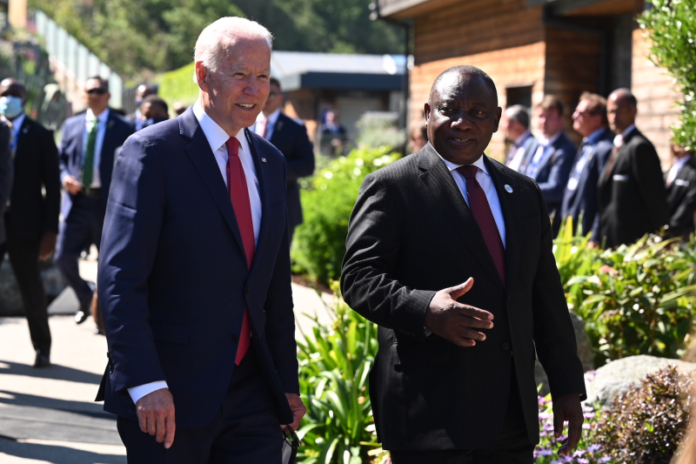Author: Souha Majidi
Affiliation: Policy Center for the New South
Organization/Publisher: Policy Center for the New South
Date/Place: November 26, 2020
Type of Literature: Opinion
Word Count: 2724
Keywords: US, Red Sea, Ethiopia, TPLF, the Horn of Africa
Brief:
This opinion article visualizes President-elect Joe Biden’s strategy towards Africa. The US’s economic and strategic decline in Africa during Trump’s era marked a shift in Washington’s foreign policy towards the continent. Instead of focusing on keeping influence on Africa, Trump’s administration has honed-in on competing with great powers—China and Russia. Due to this strategy, the US lost its influence over Africa with both symmetric threats (exemplified in competing powers to the US), and asymmetric threats (terrorist activism), which are the main challenges facing the new US president. In this respect, the author suggests that the US “should be able to regain quickly its influence on the continent.” To do that in addition to the important matters that the new America president needs to deal with outside Africa, there are capacities that would allow Biden to resume Washington’s influence over the continent. The dense diplomatic network in the continent and the huge military deployment over 37 sites in Africa would enable Biden to pave Africa for the US’s next strategy, and continue to deal with important matters elsewhere beyond Africa. However, there are time-sensitive issues Biden needs to start with. Urgent issues are restoring security in insecure hot-spots like the civil war in Ethiopia, South Sudan, and the Libyan crisis. Besides dealing with security issues, the US should also reposition itself in the Sahel region in order to maintain peace and security. The main risks that the US would face if it does not consider Africa in its strategy, are the voids being filled by Russia and China. Yet, despite calling the US to reconvene its ties with Africa, the author maintains doubt on the performance of the new US administration. After Trump’s blackout policy that followed President Obama’s “efforts to aspire for a developed Africa,” Biden still represents an opportunity to work with regional allies. In this context, a joint work should be conducted with the African Institutions (African Union and African states) and help the AU rethink its own governance challenges. The US also needs to increase federal spending on African aid development. The new administration also needs a radical shift on migration policies, by canceling the travel ban that Trump issued. Last but not least, Africa’s continental free trade area is likely to get stronger with Biden’s administration. Aside from being an informative piece, the rosy liberal idea surfaces in the language of the author. The optimistic liberal language in it does not match the objective language of strategy. Strategically speaking, the US’s strategy to resume its influence over Africa, as the first stage to carry on its fight against China elsewhere, implies a realistic view not only of the US, but also of other states. In the case of Africa, the US’s weak aids for development to Africa come at the expense of the African states. Whether with Biden or Trump, the US remains a state that always seeks its own interests, regardless of the suffering it causes. The author’s call for Biden to resume the US’s influence over Africa is questionable, as the US’s response to the author’s call would be a liberal hope in a brutish world.
By: Imad Atoui, CIGA Research Associate




